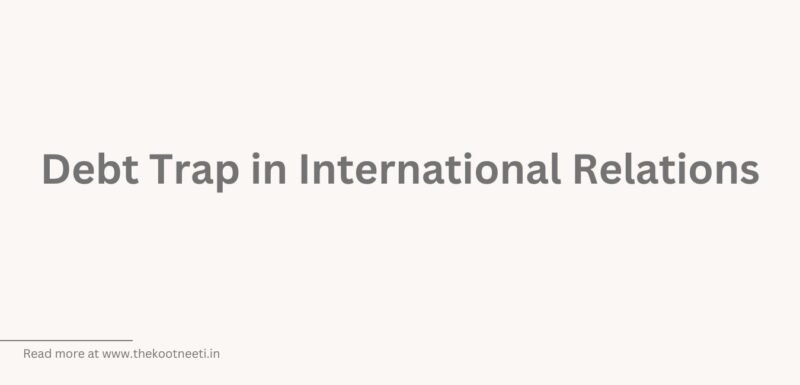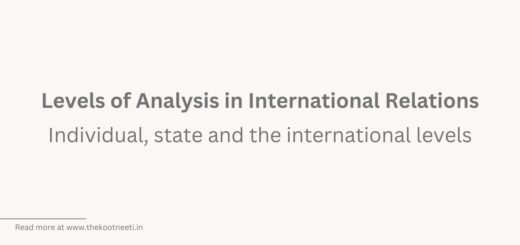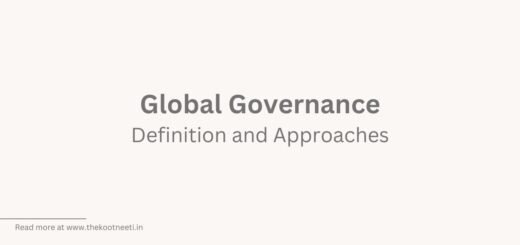What is Debt Trap in International Relations?

A debt trap in international relations refers to a situation in which a country becomes heavily indebted to another country or financial institution and is unable to repay the debt. This can occur when a country takes out loans from foreign lenders to finance development projects or other needs, but is unable to generate the necessary revenue to repay the loans.
Debt traps can have significant consequences for the indebted country, as it may be forced to take on additional debt in order to meet its repayment obligations, leading to a cycle of debt and a deepening financial crisis. Debt traps can also limit a country’s economic and political independence, as it may be forced to make policy concessions or accept other unfavourable terms in order to secure additional loans or debt forgiveness.
Debt traps are often seen as a result of unequal power dynamics in international relations, as poorer countries may be more vulnerable to predatory lending practices and may have less bargaining power to negotiate favourable terms. Critics argue that debt traps can perpetuate cycles of poverty and undermine economic development in affected countries.
Debt Trap Diplomacy
Debt trap diplomacy is a term that is sometimes used to describe the use of foreign loans and debt as a tool of foreign policy. It refers to the practice of using debt to influence the domestic or foreign policy of another country, often in ways that are unfavourable to the borrowing country.
Debt trap diplomacy may involve lending to a country on terms that are unfavourable or unsustainable, such as high-interest rates or unrealistic repayment schedules. It may also involve using the threat of debt default or debt forgiveness as leverage to influence the borrowing country’s policies or actions.
Debt trap diplomacy is often seen as a controversial and predatory practice, as it can undermine the economic and political independence of borrowing countries and perpetuate cycles of poverty and underdevelopment. It has been criticized by international organizations and human rights groups as being unethical and exploitative.
Chinese Dept Trap Policy
China’s Belt and Road Initiative (BRI), also known as the One Belt One Road (OBOR) or the New Silk Road, is a large-scale infrastructure development project that aims to improve connectivity and economic development in countries along the old Silk Road. The BRI involves the construction of roads, railways, ports, and other infrastructure projects in countries in Asia, Europe, Africa, and the Middle East.
There have been concerns raised about the potential for the BRI to lead to debt trap situations for participating countries. These concerns are often related to the high levels of borrowing required to finance BRI projects and the potential for these projects to generate insufficient economic returns to enable borrowing countries to repay their loans.
Critics argue that China may be using the BRI to increase its influence in participating countries and to gain strategic assets, such as ports and other infrastructure. Some have also raised concerns about the potential for the BRI to lead to environmental and social impacts in participating countries, as well as the potential for corruption.
China has denied that the BRI is designed to create debt traps and has emphasized that the initiative is based on mutual benefit and cooperation. It has also argued that the BRI is an important contributor to global economic development and that it is working to address concerns about the initiative.


















